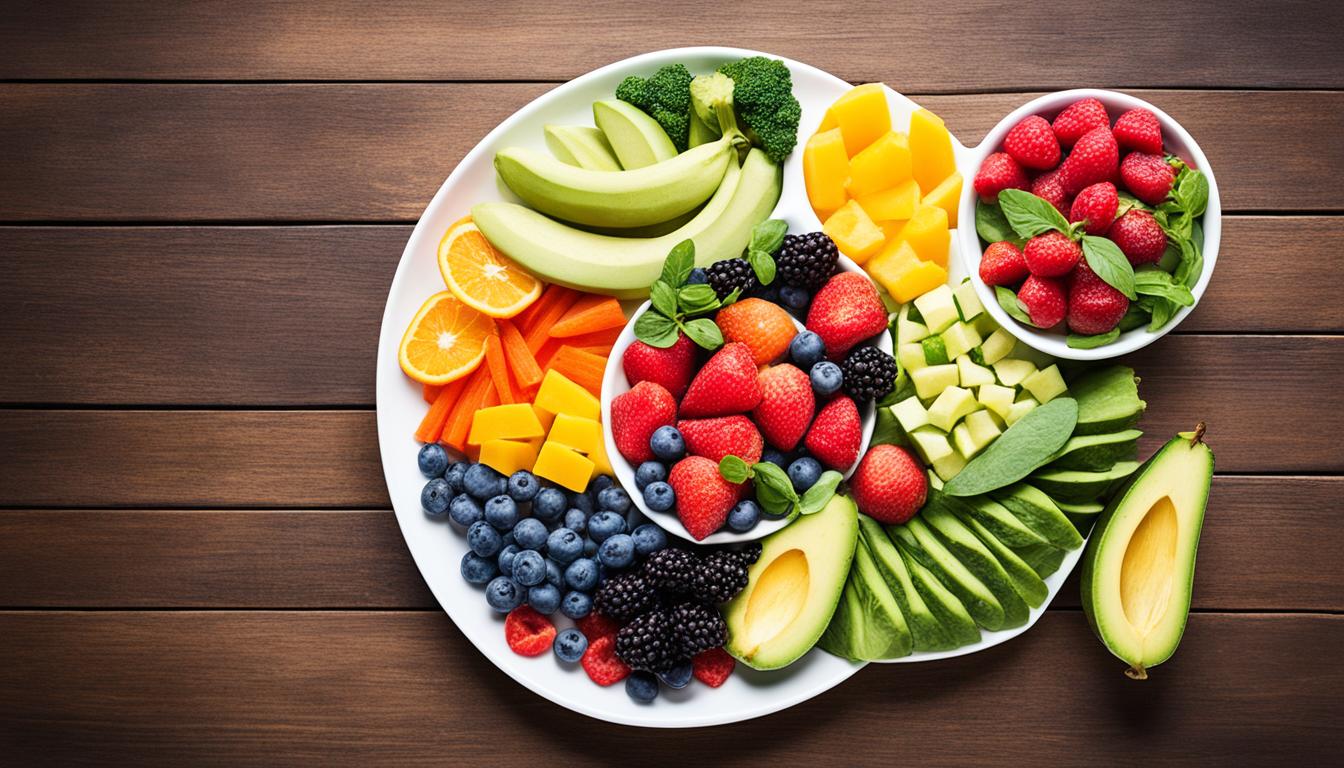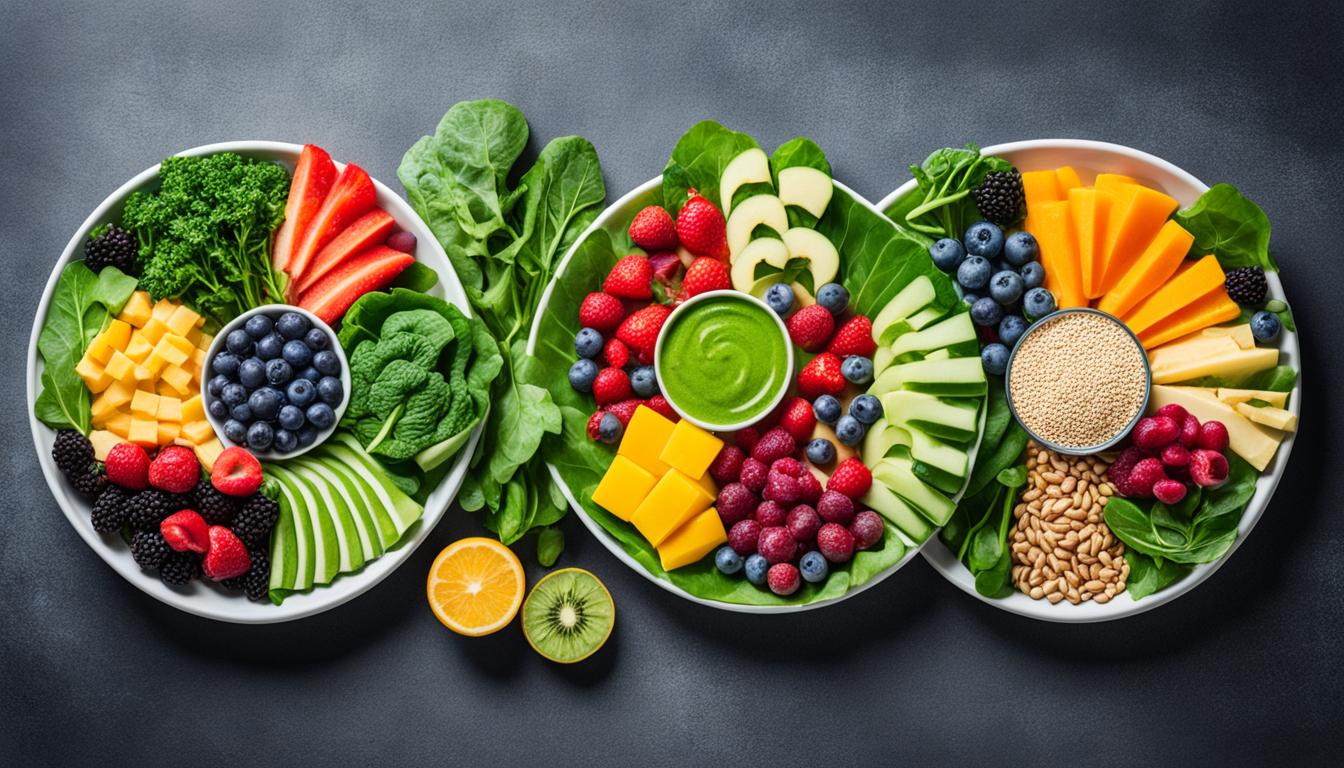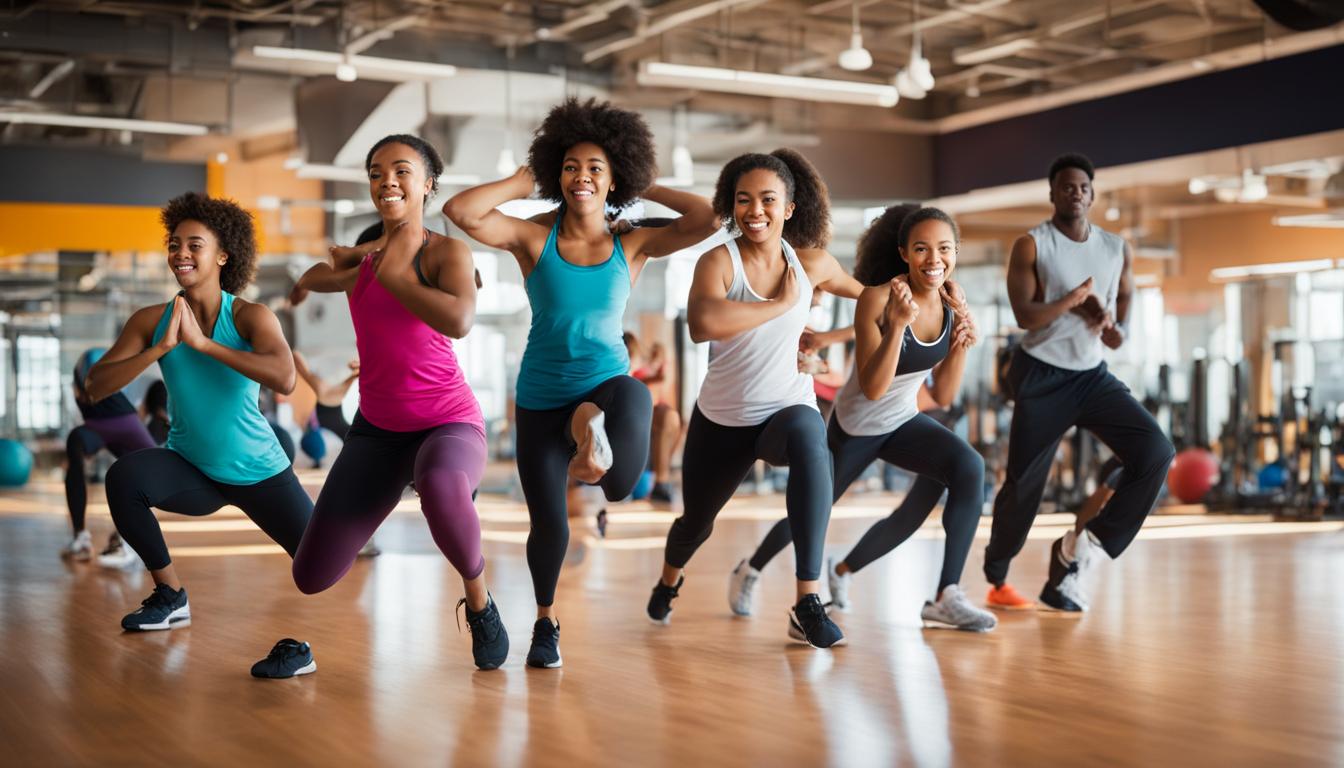Being a teenager is an exciting time of growth and discovery. Along with all the changes happening in your life, it’s crucial to prioritize your physical fitness and overall well-being. Adolescence is a unique stage where your energy, adaptability, and ability to recover are at their peak. By engaging in regular exercise and developing healthy fitness habits now, you can lay the groundwork for a lifetime of sustainable health and fitness.
Exercise offers numerous benefits for teenagers. It improves physical health by strengthening bones, muscles, and joints. Regular exercise also supports a strong immune system, enhances cognitive function, and even boosts academic performance. Furthermore, physical activity plays a vital role in mental health, reducing symptoms of depression, anxiety, and psychological distress.
It’s crucial to understand the changes happening in your body during this phase of life. Adolescence is a period of significant physical development, characterized by varying growth rates and changes in coordination. Embracing these changes and being patient with your body as it adapts to its new form is essential. Additionally, this stage is an opportune time to develop coordination and movement patterns, as the brain goes through remodeling.
While exercise is essential, it is equally important to pay attention to your diet. A balanced eating plan for teenagers should include a variety of nutrient-rich foods and beverages. Fruits, vegetables, whole grains, lean proteins, and low-fat dairy products provide essential vitamins, minerals, and fiber that support growth, development, and overall health. It’s crucial to limit the intake of saturated fats, added sugars, and sodium found in processed and packaged foods.
To help you navigate through the world of teen fitness, we’ve compiled a comprehensive guide covering everything you need to know. From exercise guidelines to healthy eating tips, we’ve got you covered!
Key Takeaways:
- Regular exercise during the teenage years can improve physical health, mental well-being, and academic performance.
- Adolescence is a period of significant growth and development, making it an ideal time to focus on coordination and movement patterns.
- A balanced diet for teenagers should include fruits, vegetables, whole grains, lean proteins, and low-fat dairy products, while limiting saturated fats, added sugars, and sodium.
- Teenagers may fall short in certain essential nutrients, such as calcium, vitamin D, potassium, and fiber. Pay attention to including these nutrients in your diet.
- Engaging in at least 60 minutes of moderate-to-vigorous intensity exercise every day is recommended for teenagers.
The Rewards of Movement
Regular physical activity is essential for teenagers as it offers a wide range of benefits for their overall health and well-being. Engaging in fitness activities not only helps maintain healthy bones, muscles, and joints, but also supports a strong immune system. Physical exercise plays a crucial role in cognitive function and academic performance, improving focus and concentration.
Furthermore, engaging in regular physical activity has proven to be beneficial for mental health. Exercise reduces symptoms of depression, anxiety, and psychological distress, promoting better emotional well-being. It is a great way to release stress and boost mood, helping teenagers to navigate the challenges of adolescence.
Teenagers have a plethora of fitness activities to choose from based on their interests and preferences. Running, strength training, team sports, and martial arts are just a few examples of physical activities that can be enjoyed. By participating in these activities, teenagers can develop physical strength, endurance, flexibility, and coordination, all while having fun and staying active.
Regular exercise is an opportunity for teenagers to build a foundation of health and fitness that will benefit them throughout their lives. It is important to encourage and support teenagers in their pursuit of a healthy and active lifestyle, as it can have a profound impact on their physical and mental well-being.
The Facts of (Young Adult) Life
Adolescence is a period of significant physical development, characterized by varying growth rates and changes in coordination. It’s a time of transformation, and although it may feel awkward at times, it’s important to embrace these changes and be patient with your body as it adapts to its new form.
During this stage, your brain also goes through remodeling, making it a favorable time to develop coordination and movement patterns. This means that while you may stumble and fumble at first, your brain and body are primed for improvement.
Understanding your individual physical development is key to setting realistic goals and expectations for your fitness journey. Recognizing that everyone’s growth and coordination occur at different rates can help you appreciate and celebrate your own progress.
So, don’t be discouraged by any temporary clumsiness or lack of coordination. Instead, focus on gradually building your physical abilities and improving your coordination through regular exercise and practice. By doing so, you’ll not only enhance your physical fitness but also develop skills that will benefit you throughout your life.

What Foods and Beverages Should I Choose?
A healthy eating plan for teenagers is an essential part of maintaining a balanced diet and promoting overall well-being. By choosing nutrient-rich foods and beverages, you can provide your body with the necessary vitamins, minerals, and fiber it needs to support growth, development, and optimal health.
Include a variety of fruits and vegetables in your meals and snacks. These colorful and flavorful options are packed with vitamins and minerals that are crucial for your body’s functions. Aim to have at least five servings of fruits and vegetables each day to ensure you’re getting the necessary nutrients.
Whole grains are another important component of a healthy diet for teens. They provide sustained energy and are a good source of fiber. Incorporate foods such as whole wheat bread, brown rice, and oats into your meals to reap the benefits of these nutrient-rich options.
Lean protein is essential for muscle growth and repair. Include sources of lean protein in your diet, such as skinless chicken, turkey, fish, beans, and tofu. These options are low in saturated fat and provide essential amino acids that support healthy body functioning.
Don’t forget about low-fat dairy products as well. These foods are rich in calcium and vitamin D, which are vital for bone health. Choose options like skim milk, yogurt, and low-fat cheese to meet your dairy needs.
While it’s important to focus on nutrient-rich foods, it’s equally crucial to limit the consumption of saturated fats, added sugars, and sodium. These are often found in processed and packaged foods, such as fast food, sugary drinks, and snacks. Opt for healthier alternatives, such as homemade meals and snacks, to reduce your intake of these less nutritious options.
Remember, making informed choices about what you eat plays a significant role in your overall health and well-being. By choosing a wide variety of nutrient-rich foods, you can enjoy a balanced diet that supports your growth, physical activity, and overall vitality.

Which Nutrients May I Be Missing?
Teenagers often fall short in their intake of certain essential nutrients, which are vital for their growth and development. It’s important to ensure a balanced diet that provides these necessary nutrients to support their overall health and well-being.
The Power of Calcium and Vitamin D for Strong Bones
Calcium and vitamin D are essential for bone health during the teenage years. Calcium helps build strong bones, while vitamin D helps the body absorb calcium effectively. Include dairy products like milk, yogurt, and cheese in your diet, as they are excellent sources of both calcium and vitamin D. If you follow a plant-based diet, opt for fortified plant-based alternatives that are rich in these nutrients. Additionally, certain fruits and vegetables like kale, broccoli, and oranges contain calcium and can contribute to your calcium intake.
Boost Heart Health with Potassium
Potassium plays a crucial role in maintaining a healthy heart. It helps regulate blood pressure and supports proper heart function. Include foods like beans, potatoes, citrus fruits, and bananas in your diet, as they are rich sources of potassium. These foods not only provide this essential nutrient but also add variety and flavor to your meals.
The Importance of Fiber for Digestion and Weight Management
Fiber is an important nutrient that aids in digestion and can help manage weight. It adds bulk to your diet, which promotes healthy digestion and prevents constipation. Whole grains, fruits, and vegetables are excellent sources of fiber. Incorporate foods like oats, brown rice, apples, and carrots into your meals to boost your fiber intake.
By ensuring a balanced diet that includes these key nutrients, you are laying a strong foundation for your overall health and well-being. Remember to make informed food choices and enjoy a variety of nutrient-rich foods every day.

How much physical activity do I need?
For teenagers, it is recommended to engage in at least 60 minutes of daily exercise to promote good health and overall fitness. This includes moderate-to-vigorous intensity activities that get your heart pumping and make you break a sweat. You have a wide range of options to choose from, including brisk walking, biking, dancing, or playing team sports. Keep in mind that it’s important to participate in a variety of activities to target different muscle groups and promote overall fitness.
Regular exercise not only keeps your body fit but also has numerous benefits for your mental well-being. It can reduce stress, improve mood, and boost self-esteem. Make sure to find activities that you enjoy and make exercise a part of your daily routine. When physical activity is enjoyable and sustainable, it’s easier to stick with it in the long run.
Remember, every minute counts! Even short bursts of physical activity throughout the day can add up to meet the recommended daily exercise duration. Find opportunities to incorporate movement into your daily life, whether it’s taking the stairs instead of the elevator or going for a walk during your lunch break.

Conclusion
Teen fitness is vital for supporting overall health and well-being during the transformative years of adolescence. This unique stage of life offers an opportunity to harness boundless energy, adaptability, and recovery capabilities. By prioritizing regular exercise, maintaining a balanced diet, and cultivating healthy habits, teenagers can establish a strong foundation for physical and mental wellness that extends well into adulthood.
Engaging in adolescent exercise not only improves physical fitness but also enhances mental well-being. It boosts cognitive function, aids academic performance, and reduces the risk of chronic diseases. Whether it’s participating in team sports, strength training, or martial arts, finding enjoyable fitness activities for teenagers is key in promoting a lifetime of sustainable health and fitness.
In addition to exercise, making nutritious food choices is essential for teenage physical fitness. A balanced diet consisting of whole grains, fruits, vegetables, lean proteins, and low-fat dairy products provides the necessary nutrients for growth and development. Limiting the intake of saturated fats, added sugars, and sodium found in processed foods further supports youth wellness.
By embracing teen fitness and adopting healthy lifestyle practices, young individuals have the power to shape their future. With lasting benefits for their physical and mental health, prioritizing exercise and proper nutrition sets the stage for lifelong well-being. Let fitness be a lifelong companion, guiding you towards a vibrant, active lifestyle filled with energy, resilience, and happiness.
FAQ
Why is teen fitness important?
Teen fitness is important because it promotes overall health and well-being during a crucial stage of physical development. Engaging in regular exercise and developing healthy habits can have lifelong benefits.
What are the benefits of regular physical activity for teenagers?
Regular physical activity provides numerous benefits for teenagers, including maintaining healthy bones, muscles, and joints, supporting a strong immune system, improving cognitive function and academic performance, and reducing symptoms of depression, anxiety, and psychological distress.
How does physical development impact teenage fitness?
Physical development during adolescence involves changes in growth rates and coordination. Understanding and embracing these changes can help set realistic goals and expectations for fitness progress.
What should a healthy eating plan for teenagers include?
A healthy eating plan for teenagers should include a variety of nutrient-rich foods and beverages, such as fruits, vegetables, whole grains, lean proteins, and low-fat dairy products. It is important to limit the consumption of saturated fats, added sugars, and sodium found in processed and packaged foods.
What essential nutrients are teenagers often lacking?
Teenagers may often fall short in their intake of calcium, vitamin D, potassium, and fiber. These nutrients are important for bone health, heart health, and digestion, and can be found in foods like dairy products, fortified plant-based alternatives, fruits, vegetables, beans, and whole grains.
How much physical activity do teenagers need?
The recommended amount of physical activity for teenagers is at least 60 minutes of moderate-to-vigorous intensity exercise every day. This can include activities like brisk walking, biking, dancing, or playing team sports.
How can teenagers ensure long-term adherence to exercise?
To ensure long-term adherence to exercise, it is important for teenagers to engage in activities they enjoy and find sustainable. Variety in activities and targeting different muscle groups can also promote overall fitness and prevent boredom.
How can teenage fitness habits impact long-term health?
Developing healthy fitness habits during adolescence can set a strong foundation for a healthy, active lifestyle that benefits individuals well into adulthood. Engaging in regular exercise and making nutritious food choices can protect against chronic diseases and promote physical and mental well-being.
Source Links
- https://experiencelife.lifetime.life/article/a-teen-fitness-guide/
- https://www.niddk.nih.gov/health-information/weight-management/take-charge-health-guide-teenagers
- https://www.linkedin.com/pulse/plr-teen-fitness-formula-review-your-ultimate-guide-health-sahni-fzkjf?trk=article-ssr-frontend-pulse_more-articles_related-content-card


